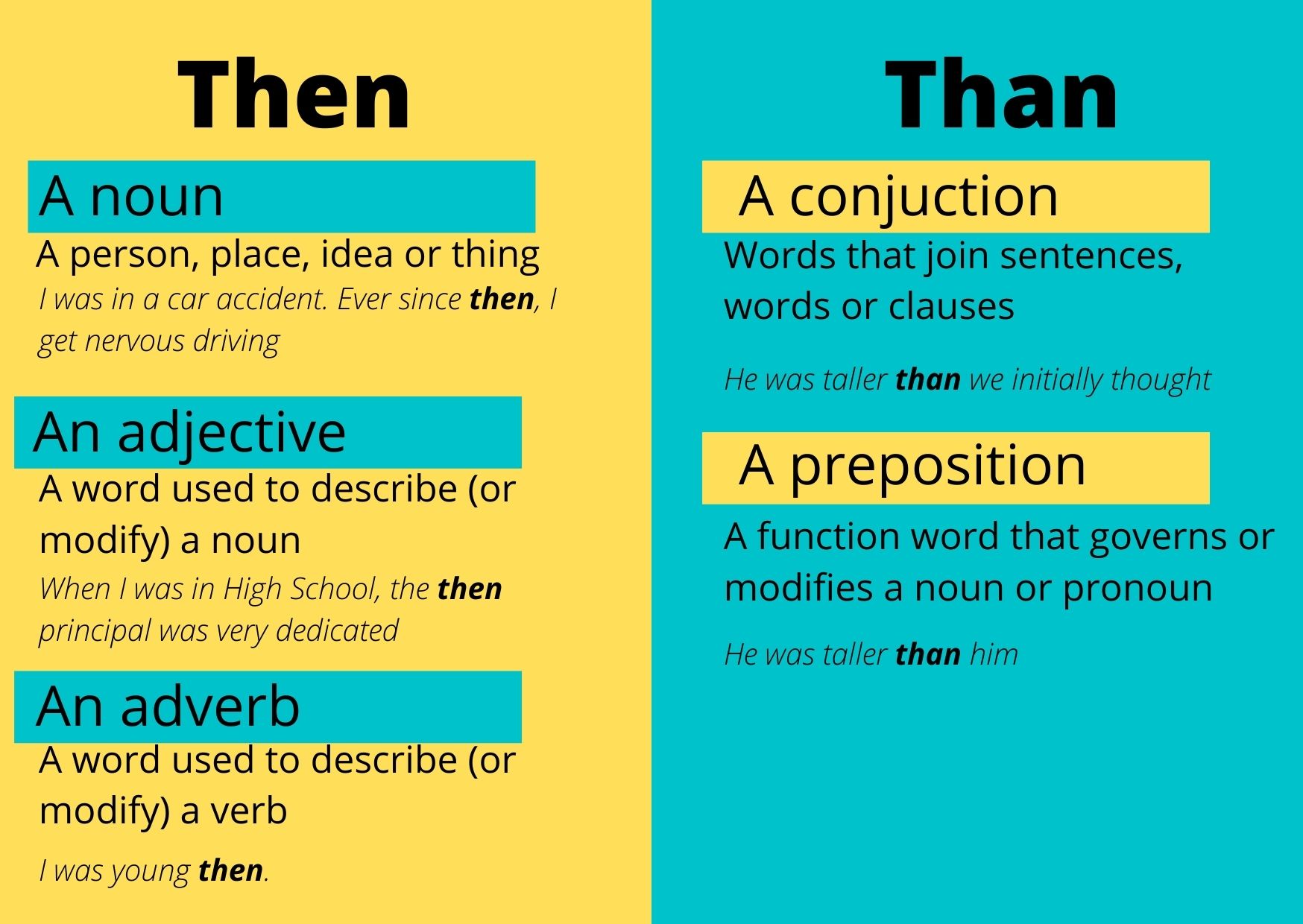Have you ever met two people who share many of the same features? They can be hard to tell apart at first glance! But one way to learn the differences between them is simply to get to know them better; even identical twins have unique characteristics. The same goes for the nearly identical than/then pair, which many people struggle with. Luckily, you don’t have to be one of them. Just employ the same strategy you use to tell two similar-looking people apart: get to know them!
When to Use Than
A conjunction connects two clauses or functions to coordinate words in the same clause. The word than is a conjunction. It’s used to introduce the second part of an unequal comparison, and it can also introduce the rejected choice when expressing a preference. Than can mean “when” or “except” as well. In addition, than can function as a preposition, which connects a noun or pronoun to a verb or adjective in a sentence to express a temporal or spatial relationship. When used as a preposition, than means “by comparison with” or “in relation to.”
The first contestant was much better than the second one.
I’d rather have chocolate ice cream than vanilla.
Alexa is a friend than whom there is none better. (This sentence may sound awkward, but it is grammatically correct!)
The word than appears in many idioms. Some common ones, such as “more dead than alive” and “more fun than a barrel of monkeys,” feature comparisons. You’ve probably heard other idioms that contain than as well, like “better late than never” and “easier said than done.” There are also some less frequently-used sayings, such as “more sinned against than sinning.”
When to Use Then
Adverbs modify adjectives, verbs, and even other adverbs. Then frequently functions as an adverb. If you look up “then” in a dictionary, you’ll find that the word is defined in multiple ways: at that time, in that case, at the same time, next in order of place or time, soon afterward, as a consequence, and in addition.
The procession will follow this order: Ben, then Ethan, then Cassandra, and finally Chris.
Rhett said, “If you’d like to go out again, then you’ll have to let me know.”
In some cases, then can also be used as an adjective or noun. When used as an adjective, it means “being such, existing, or being at the time indicated.” When used as a noun, it means “that time.”
My then-roommate Sean moved out, and I haven’t seen him since.
The word then appears in some common phrases as well. For example, the phrase “but then” means “on the other hand.” For instance, you might say, “I thought Carlos was funny, but then I think everyone is funny.” Another common phrase is “then and there,” as in, “Shirley asked me if I wanted to run to Starbucks with her, and I hopped in the car right then and there.”
Main Takeaways
The words than and then are very similar, but it’s not impossible to tell them apart. They work as different parts of speech and are used in different contexts. Than is a conjunction and preposition, while then is an adverb, adjective, and noun.
Here is a simple chart with examples to help you remember:







